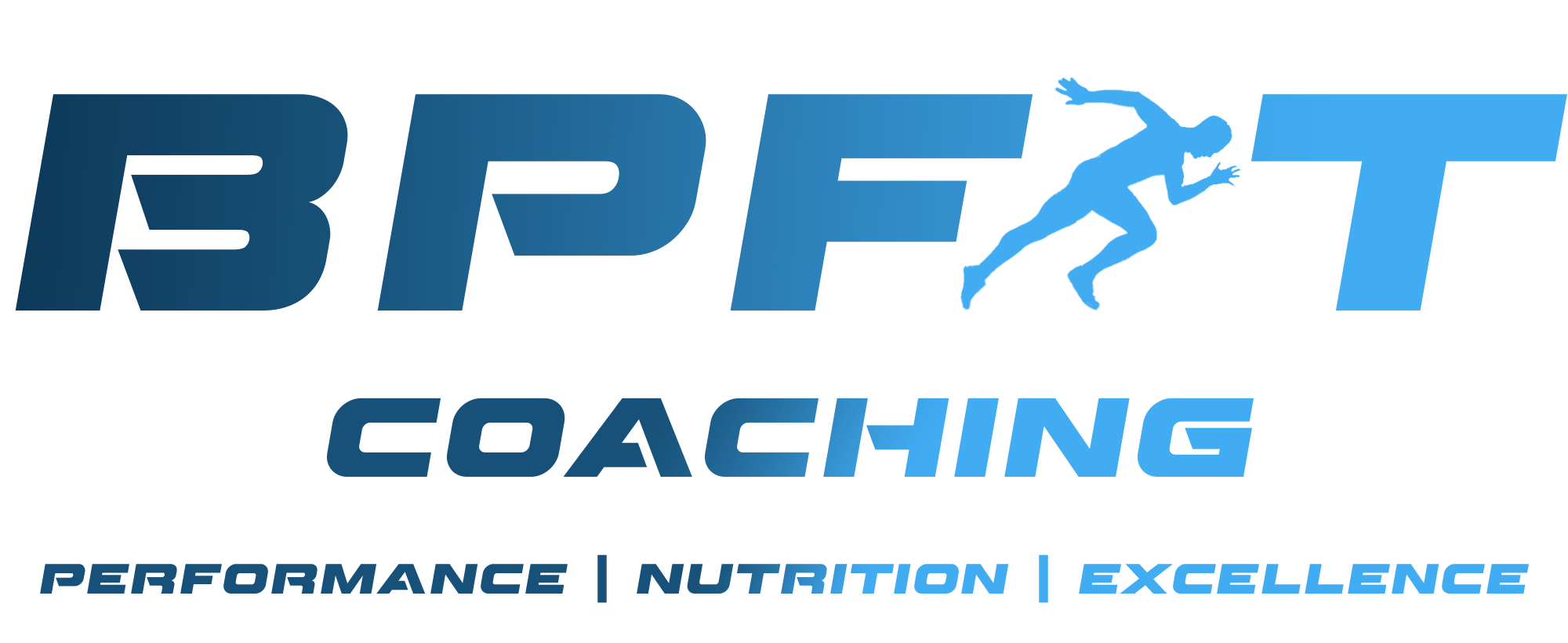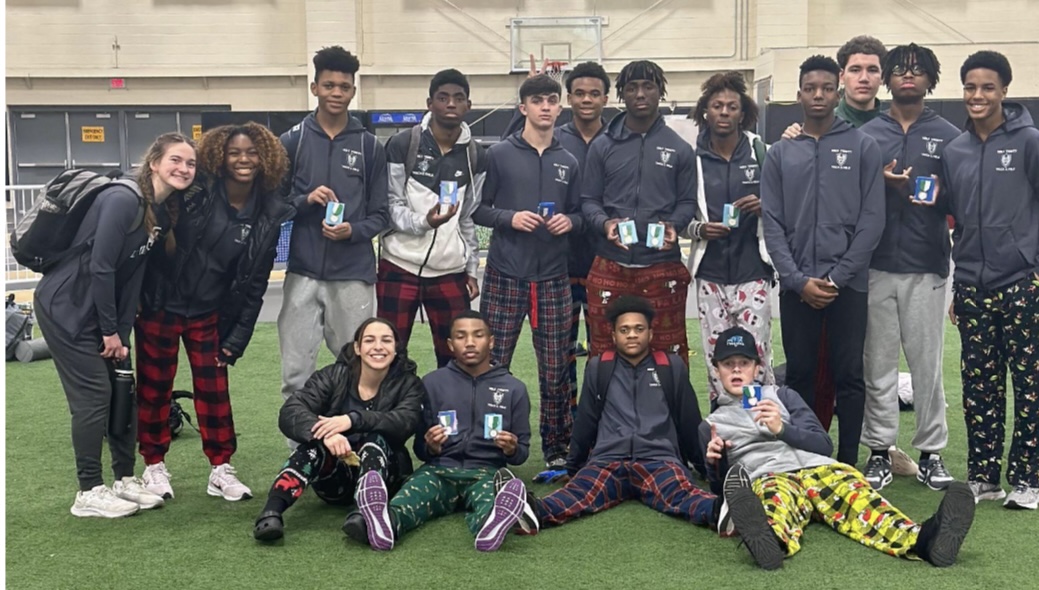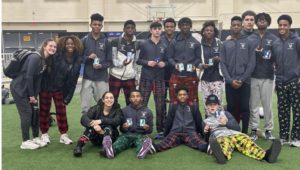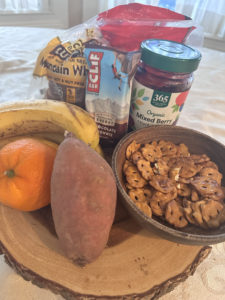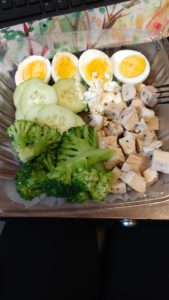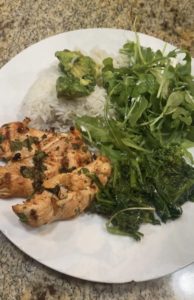Fueling Your Performance
Practical Guide to Nutrition for Athletes
By Eugenia Bradshaw
As a mom of 5 student-athletes, high school track and field coach, and trainer in the health/fitness and performance field for over 30 years it has become obvious to me that athletes need help in the nutrition area. Last week I traveled to The New Balance National Track and Field meet in Boston with 14 student-athletes. As a coach I make it a point to educate athletes about nutrition and healthier choices, but when you travel with them it’s evident that they need some guidance. Traveling with your athletes is a perfect opportunity to educate and give them strategies they can use first hand.
What are some of the challenges they face?
- Rushed Morning
- Early/Late Lunch
- Practice immediately after school
- End of day starvation mode
Most students get up very early to catch a bus and run out door without eating. Their lunch may be scheduled at 10am or 1:00pm. If it’s an early lunch they may not eat because they aren’t in the habit of eating early, now they go all day without eating. If they have a late lunch they are starving and are more likely to eat something like chicken fingers and fries, this usually doesn’t sit well at practice. The fact of the matter is their schedule isn’t “meal friendly” and you as a coach can provide them with strategies to help them
Four Remedies
- Eat Early
- Eat Often
- Go all in at Lunch
- Prioritize Recovery Nutrition
Eating early needs to become a habit because most student-athletes would rather get an extra 5 minutes of sleep than eat breakfast. Teaching them some strategies on how to have grab and go meal is helpful. This make take some getting use to but if they want to perform at their top level nutrition is important. They have to train their digestive system to eat in the morning.
1) What are some good choices?
- Egg sandwich prepared the night before
- Protein shake with fruit
- Overnight oats placed in a to go cup
- Grainy bread with banana and peanut butter
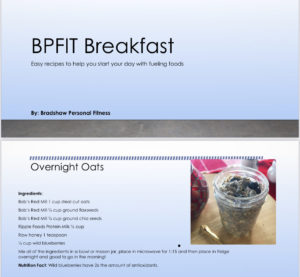
2) Eat often
- Pack easily digestible snacks: dried fruit, nuts, bars…
- Have a snack about 60-90 min before practice
- Pack a snack for right after practice to hold you over for dinner
3) Go all in at lunch
- Have a nutritious meal at lunch
- Stay away from fried and processed foods
- When you have an opportunity to eat a meal eat
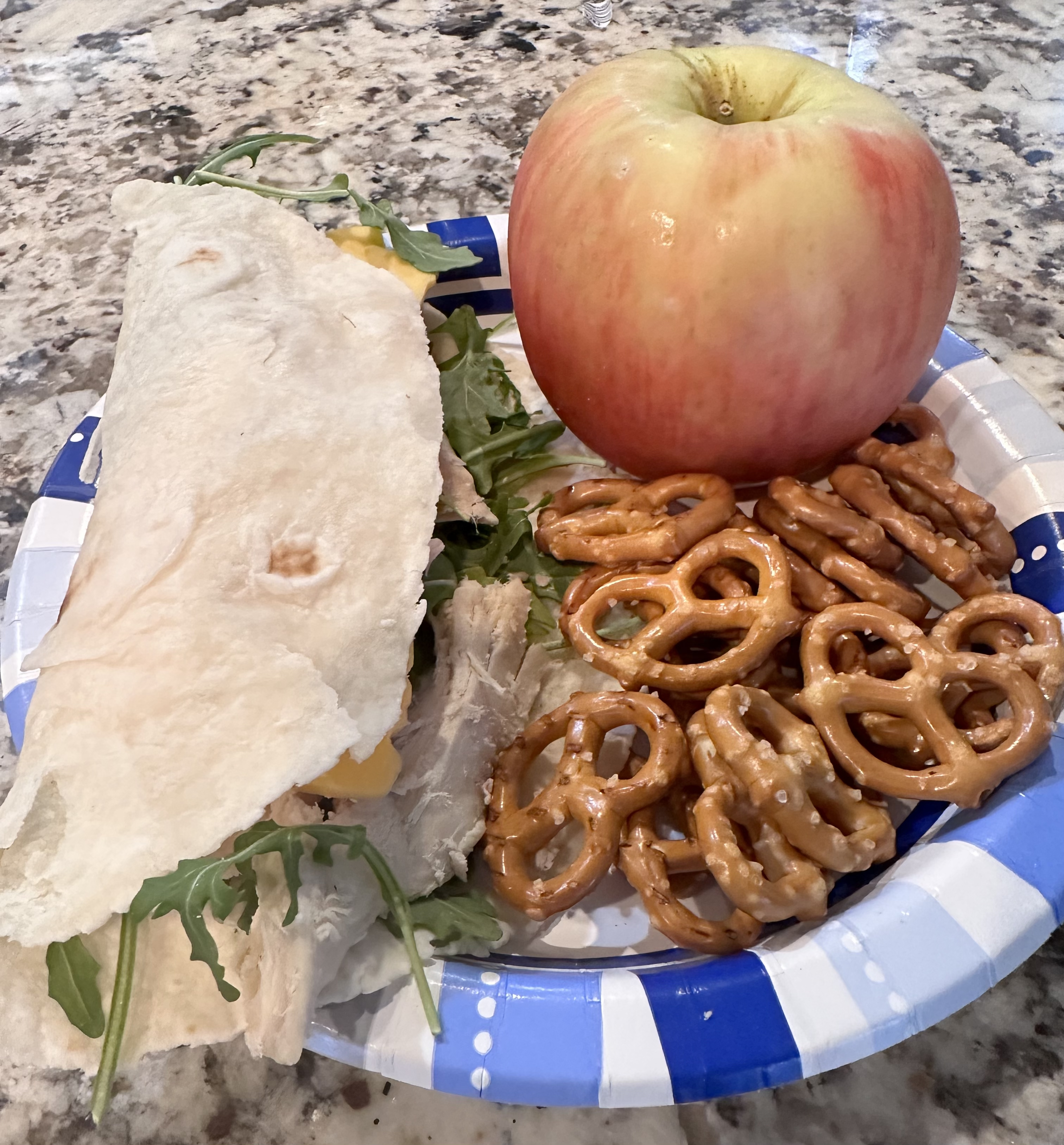


4) Prioritize recovery nutrition
- Today’s choices are tomorrow’s performance
- The meal you eat after training will help you recover for tomorrows training
- ~30% protein ~30%fat ~40% carbs
Make the meal after training a good one, it’s going to fuel tomorrow’s training and help the body recover from what you did today. Include protein, some good choices are chicken, beef, fish, and lamb, carb from veggies and potatoes, rice and pasta, good source of fat like olive oil and avocado.
Why is it difficult to eat healthy?
The reality for student-athletes is this, their schedule isn’t meal friendly, the information out there on nutrition can be confusing and it’s easier for them to eat fast food. As coaches and parents we need to educate them that a healthy diet can benefit them by:
- Increased ability to focus
- Increased strength and power
- Reduced risk of injury and illness
- Increased overall energy
- Ability to get the most out of training
Their schedule may look like meal-meal-snack-snack-snack-meal. Meal in the morning, meal at their scheduled lunch, snacks through the day, one after practice and a meal at night. School setting isn’t optimal but neither is life, we must adapt and prepare accordingly. Choosing one habit and building on that is a good place to start, choose breakfast and learn how to meal prep for that one meal. Have choices available to support the new habit to make it easier. If the goal of an athlete is to preform at their top level then nutrition needs to be part of the puzzle because we can’t out train a bad diet.
PS JOIN @bpfitcoaching for an online Webinar 3/28 7:00pm, follow the link sign up and we will email you the Zoom Link prior to Webinar….Q&A To follow! Cost $15
Fueling Your Performance
A Practical Guide to Nutrition for Athletes
